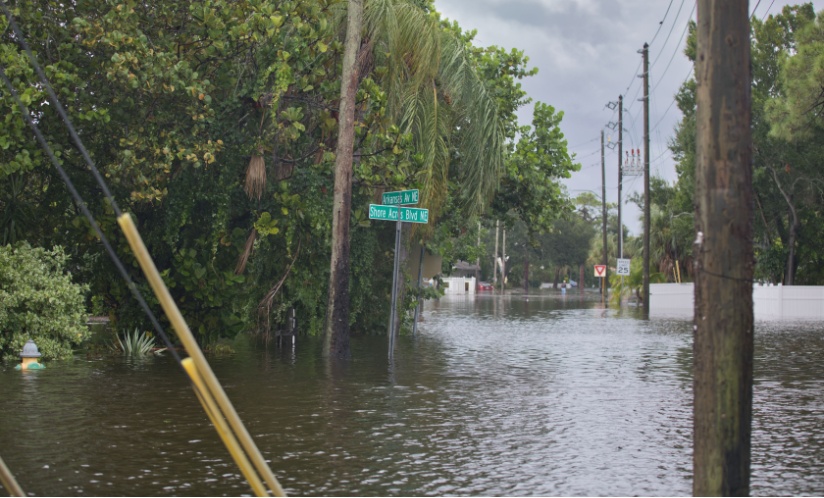Caring for Pregnant and Postpartum People During Hurricanes and Other Public Health Emergencies

In the face of public health emergencies and natural disasters, pregnant and postpartum people need to take special measures to ensure the health and safety of themselves and their children. As the Southern U.S. continues to live through a very active hurricane season that could continue through the end of November, it is more important than ever to know how to keep this vulnerable population safe.
Sarah Blake, PhD, associate professor of health policy and management and director of Emory’s Maternal and Child Health Center of Excellence, explains the unique needs and risks that pregnant and postpartum people have during emergency situations, as well as the supports available to them.
Why is it important to focus on maternal and child health in emergency situations?
Individuals who are pregnant, postpartum, who are breastfeeding, or who have young children have specific functional and access needs that we have to consider. We must consider them not only while an emergency is unfolding, but also in all areas of emergency preparedness: preparation, response, and recovery. Mothers have unique needs that require special consideration during all those stages.
What are the special needs that pregnant, postpartum, and breastfeeding people have during emergencies?
For someone who is currently pregnant, we have to consider if she has access to information from her OB/GYN and is in communication with them, regardless of her stage of pregnancy. That will help determine what specific things we can do to prepare her. For a mom who is about to deliver, we need to make sure that she's safe and close to her delivery hospital and maternal care providers.
For someone who has recently delivered and is in the postpartum period, a major concern is infant feeding and care. Does she have access to lactation support, breastfeeding supplies, or all the other supplies she needs for her newborn?
What we've learned from our community partners here in Georgia in the aftermath of Hurricane Helene is that there are communities that are still without power and water. There are parents and children within those communities who need diapers and formula.
What other risks does this population face?
What we are hearing is just how stressed out the communities [affected by Hurricane Helene] are because they may not have access to needed resources. What we're worried about is what effect that stress has on pregnant and postpartum individuals.
Stress can cause negative birth outcomes like spontaneous miscarriages, preterm birth, and low birth weight. There can also be downstream effects for the children later, and it is concerning because we will not know immediately what all the effects will be.
Where should pregnant and postpartum people turn for information and support during public health emergencies?
Their immediate support system. People who are pregnant and postpartum should always think about their family members, religious communities, and other close people in their lives as being supportive in terms of real functional support during emergencies.
Health care providers. Pregnant and postpartum individuals should be reaching out to their health care providers, who will help them learn about resources, processes, what they should and shouldn't do, and how to feel safe during emergencies.
Public health and emergency preparedness officials. In each regional health district, there are emergency preparedness officials whose job is to work and reach out to communities. Pregnant and postpartum individuals are considered a special vulnerable population, and because of that, there should be an emergency preparedness plan in each region that incorporates communication with this group specifically.
Community health workers and organizations. Your doctor’s office or public health department might be closed because of the emergency, so it is very important to know where you can go in that case. A lot of people who are receiving benefits such as WIC or SNAP, you need to understand how you can still access those resources. Community health workers, home visitors, doulas, and midwives who pregnant and postpartum people may already be working with are excellent resources in these situations.